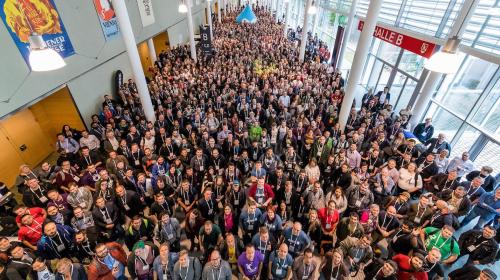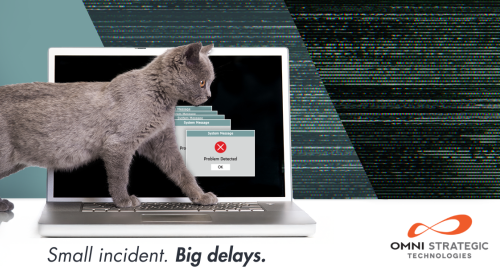The Resiliency of Drupal

Over the years I've found myself in debates about the pros and cons of Drupal as a content management platform. I've found that many of the arguments against an open-source platform like Drupal stem from a misunderstanding of how open-source software ecosystems work. A real head-scratcher for me has been the idea that "Drupal has a lack of support." The first time I heard this it took me a few seconds to even understand the question.
Drupal's community support is one of the biggest selling points for the platform. In fact, the saying, "come for the code, stay for the community" has become the de facto motto for Drupalers over the years. Through 9 years of using the platform, I've never found an issue that couldn't be resolved through a quick combination of Google, StackOverflow, and Drupal.org. I can't say I've found the same level of support for any other platform, open or proprietary, that I've explored over the years.
What do opponents mean when they say "support?" Is this the kind of support where you pick up the phone or email someone for help? Is this developer support or user-support? If it's developer support, could you trick them into pair-programming and building features for you? Now we're talking! That's the kind of support I could get behind!
Eventually I understood that there seemed to be a belief that because Drupal isn't owned by a supporting organization like Adobe, Salesforce, or Microsoft, the software must be inherently less resilient over time. After all, who would be crazy enough to build and maintain software for free? (the open-source community is)
I'm a "strong opinions, weakly held" kind of person most of the time, so I often revisit these issues to explore if my beliefs around open source communities are wrong. Are open-source communities weaker than their proprietary counterparts? What would stress-test a successful open source community?
A Global Pandemic & Recession
Each year The Drupal Association hosts the biggest Drupal conference (DrupalCon) of the year in the spring. As a non-profit, The Drupal Association's mission is to help grow and sustain the Drupal community. Despite attempts to diversify their revenue model over the years, the association still relies heavily on ticket sales and sponsorships from DrupalCon. Ultimately, the association funds and manages the infrastructure of drupal.org and brings the community together in a variety of very important ways. While The Drupal Association is not Drupal, they're incredibly valuable to the community.
While I believe that successful open-source projects are relatively recession-proof (see Drupal founder, Dries Buytaert's, article "Is Open Source recession-proof"), it became clear that The Drupal Association's future was less clear as event venues closed to all gatherings.
On March 25, Heather Rocker, Executive Director of the Drupal Association, described the Financial Effects of COVID-19. They estimated a revenue loss of $400,000 to $1.1 million and asked the community to help close the gap through memberships, sponsor pledges, and donations.
#DrupalCares
Over the next few weeks several big donors, a coalition of organizations, and individual community members banded together to close the revenue shortfall. Just look at these headlines!
- Dries & Vanessa Buytaert pledge to match $100,000 in individual contributions
- 749 Donors donate over $70,000
- 29 Organizations Join Together to Pledge to match $100,000 in individual contributions
- Gábor Hojtsy Pledges to Donate €9 for Every Drupal Module Updated to Drupal 9
- Jeff Geerling Pledges $1 per like to the Drupal Association
- Jay Rockowitz donates $4000 and Calls on the Community to step up for Membership Renewals
- Thanks to Drupal Businesses, You Can Now Triple Your Impact
I suspect this is only the beginning. At the time of this publication, 64% of the #DrupalCares $500k fundraising goal has been raised.
Open source communities are built on collective progress, by people who love to help one another, and to build excellent software. The Drupal community has a long history of helping others both on a daily basis and in times of crisis. Time and time again they step up to create resources for the collective good. Some of the hottest websites on the planet right now are built on this platform and rely on the community every day; IRS.gov, CDC.gov, NIH.gov.
Strong and focused communities like Drupal have shown time and time again to be a pretty resilient thing to build upon. If you're considering an investment in Drupal, I'd recommend engaging in some deeper discussions within the community.
I think you'll find all the support you need.
If you'd like to make a sustaining donation to The Drupal Association, visit https://www.drupal.org/association/sustain-da-covid-19 for details.

Aaron Silber
Our resident digital polymath, Aaron shares a wide knowledge of how products and services are designed and built for the web.



